Mission
To advance digital scholarship and digital academic research by providing a supportive environment where researchers can connect, share knowledge, and collaborate on innovative projects that leverage digital technologies and data-driven methods.
Vision
Our vision for Digital Scholarship and Data Services (DSDS) is to serve as a dynamic hub of innovation, collaboration, and excellence in support of scholarly endeavors. We aspire to be at the forefront of digital scholarship, leveraging emerging technologies and best practices to empower researchers, support scholarly communication, and advance knowledge creation. By fostering interdisciplinary collaboration, promoting open access principles, and embracing a user-centric approach, we aim to inspire transformative research, enrich teaching and learning experiences, and contribute to the advancement of knowledge in an ever-evolving academic landscape.
Our Expertise
3D Printing for Research Applications - 3D printing expertise across a broad range of materials, print volumes, and printer setups
Advanced Imaging Techniques - Photogrammetry/3D scanning, 3D modeling, capturing, storing and sharing 3D data
Data Analysis & Management Methodologies – Cleaning messy data, data visualizations, research data management
Digital Storytelling – Digital exhibits, storytelling through mapping, digital editions, digital humanities ethos
Digital Lifecycle Management – Digital preservation, web archiving, lightweight web presences, digital information literacies
Information Engineering – Automation techniques, working with large language models, data science principles
Project Management for Digital Scholarship – Tools and methods for managing digital scholarship workflows and timelines from project ideation to publication.
Services
Consultations
DSDS personnel are available for consultations to discuss:
Tools and technologies. DSDS can provide guidance on using tools for which we have expertise and can collaborate with you on approaches to develop a deeper understanding of tools we are less familiar with.
Methodologies and workflows to help you determine which options could be most supportive of your research goals.
Research and theory. Our team of experts are trained in a variety of disciplines. We are excited to explore how your research intersects with digital scholarship, data science, information science, arts & humanities research and more.
Campus collaborative opportunities. DSDS can help connect you with other members of the OU community that can help you further your research goals.
Embedded Course Instruction
Faculty may request to collaborate directly with library specialists through integrated course instruction. Specialists are available for one-time class visits or to collaborate on semester-long classes.
Research Data Management
Guidance and support on creating data management plans, curating research data, or using generalist data repositories such as Dryad and Open Science Framework (OSF).
Grant Funded Project Support
Collaborations on grant funded projects. DSDS personnel are available for embedded grant support on a case-by-case basis. If you are interested in collaborating with our specialists on a grant project, please get in touch with us.
Fall 2025 Open Office Hours
Open office hours are available on a weekly basis on the following topics. Schedules change on a semesterly basis. Current office hours:
- Digital Scholarship
- Data Services
Thursdays 1pm – 3pm (In Bizzell LL2102 or via Zoom )
Workshops
Workshops on a variety of topics are available each semester. Though some topics may be suitable for intermediate or advanced skill sets, most workshops are meant to provide an introduction to a tool or topic. Please visit the Libraries' events calendar for a full schedule of library events and workshops.
Check back in August for the Fall 2025 workshop schedule!
Sample topics include:
- Data Cleaning with Open Refine
- Python
- Getting Better Results with Prompt Engineering
- Version Control using Git/GitHub
- Visualizations in Python using Matplotlib
- Creating a Digital Exhibit with Omeka
- R for Social Sciences
- Visualization in R using 'ggplot2’
Labs & Tools
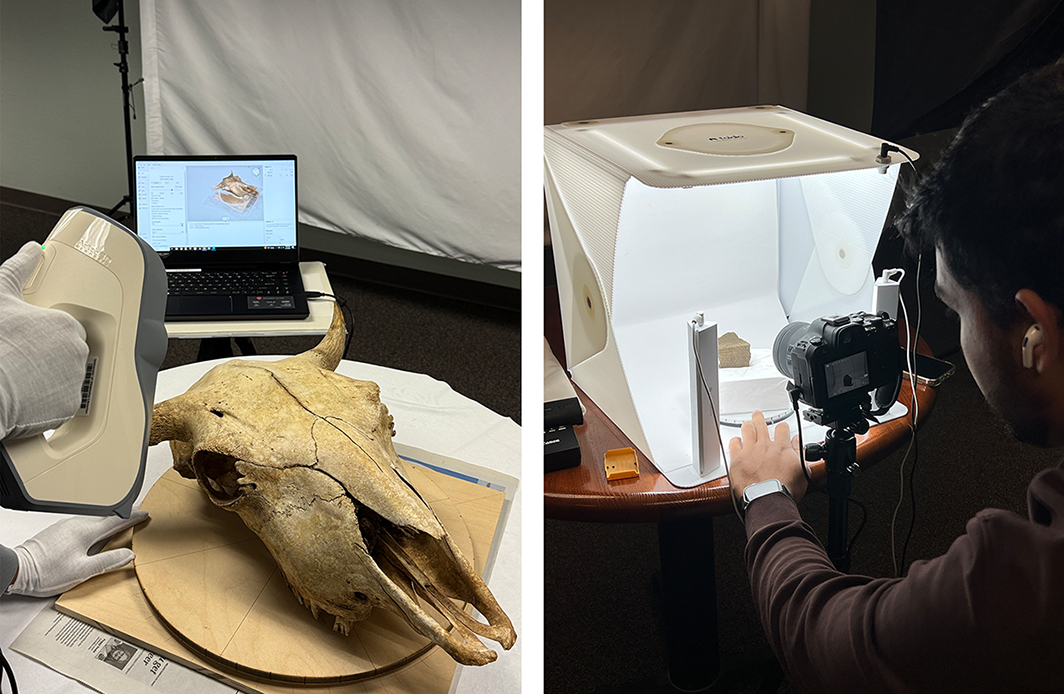
The 3D Scanning Lab provides researchers with equipment, software, and consultation throughout the entire 3D modeling process, from project development through data capture, publication, and archiving. Our mission is to ease the financial and intellectual load for researchers that 3D modeling requires, while fostering innovative, replicable research of the highest quality.
Coming soon! UL 3D Library (Elevator)
Elevator is an expansion of services in Research 3D Scanning intended to support courses and research. This repository can be used to store, view, and share assets, including 3D models created by university personnel. The aim of this service is to increase the accessibility of fragile, difficult to physically access artifacts and collections to the campus community and beyond. Currently in pilot.
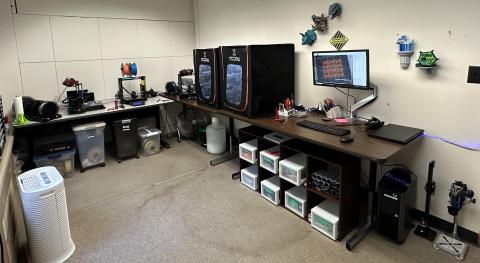
Research 3D Printing supports campus research through 3D printing consultations and services. Unlike the Library MakerSpace, print times can exceed 12 hours and a variety of filaments are able to be printed with, such as: PLA, PETG, TPU, ASA, and BVOH. Examples of what we can print include rapid prototypes for research and tactile manipulatives for course integrations.
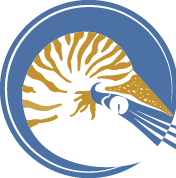
University Libraries is using Nautilus to provide researchers with hosted pods (also known as containers) for JupyterLab environments to access common software setups for coding languages and applications.
Our Team

Tyler Pearson, Director, Digital Scholarship and Data Services
Focus: Informatics, Automation, Data Transformation and Integration
Tyler oversees the Digital Scholarship and Data Services Department which combines expertise to support researcher and scholarly endeavors in the digital realm through consultations, partnerships, and workshops. Specific domains include data management, digital scholarship, emerging technologies, informatics, 3D printing, and 3D scanning.

Mark Laufersweiler, Research Data Specialist
Focus: Data Management Plans, Containers, Carpentries
Mark supports OU community members with their research data needs. He offers consultations on the management, analysis and visualization of data both in person and online, where faculty and graduate students have the ability to ask questions and receive guidance on working with their data. He holds consultations in Collaboration Room LL2104 of the Data Services Unit (formerly DAVIS), on Lower Level 2 of the Bizzell Memorial Library.
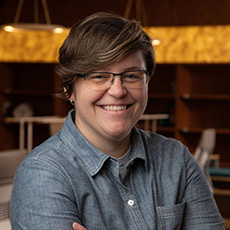
Kristi Wyatt, Digital Fabrication Coordinator
Focus: 3D Scanning, Photogrammetry, and Hardware Prototyping
Emerging technologies librarians augment the research and instruction life cycle of the OU community by providing researchers with 3D equipment, software, and consultation.
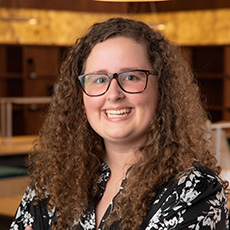
Jessica Lumry, Emerging Technologies Librarian
Focus: 3D Printing
Emerging technologies librarians augment the research and instruction life cycle of the OU community by providing researchers with 3D equipment, software, and consultation. The Research 3D Printing service supports campus research through 3D consultations and services.

Brianna Wright, Digital Scholarship Librarian
Focus: Digital Scholarship and Digital Humanities tools and practices.
Libraries Digital Scholarship Specialists offer collaborative, cross-disciplinary research and digital scholarship support through workshops, consultation, and project partnerships. Digital Scholarship Specialists help faculty and graduate students identify digital tools and resources that build on traditional research and teaching methods.

Varun Sayapaneni, Research Informatics Specialist
Focus: Data-intensive research in Digital Scholarship projects.
The Informatics unit at the University of Oklahoma Libraries specializes in information engineering, emphasizing the automation, storage, and retrieval of data through digital infrastructure.